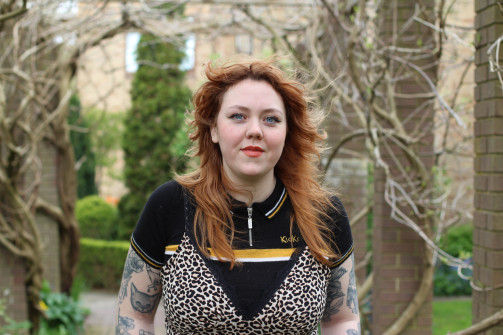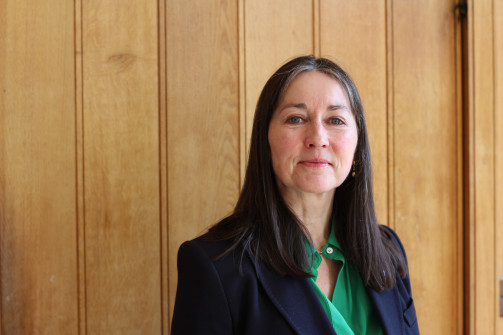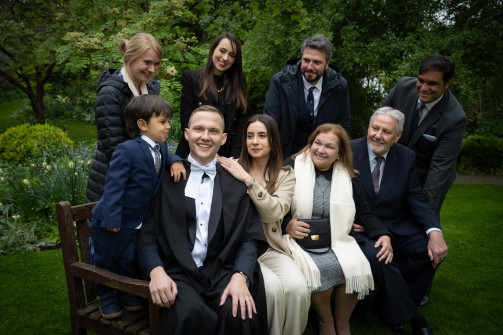"I find the world endlessly interesting" - Sandi Toksvig OBE delivers this year's Lee Lecture
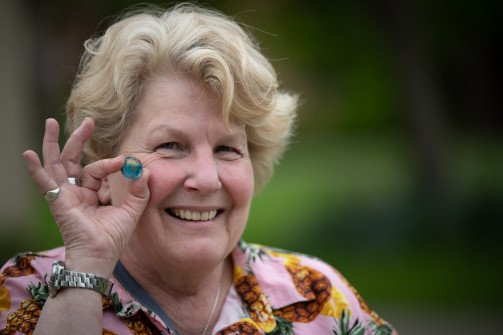
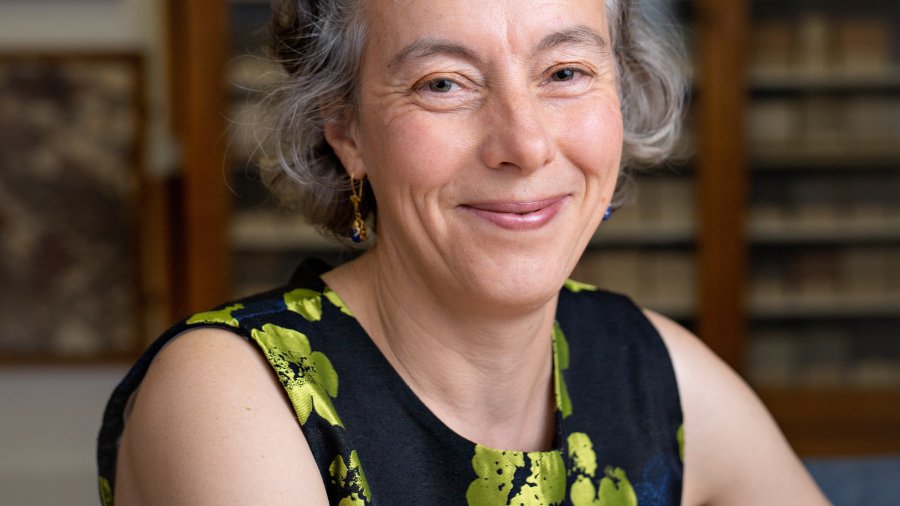
BSc PhD
Judith Bunbury is a geologist working with archaeologists to explore evidence for ancient landscape and climate change in Egypt and elsewhere. In addition to her research articles, she is author of two books on the Nile.

Originally studying geology and geophysics at Durham University, Judith garnered fieldwork skills in the coal and ore fields of the north of England. For her PhD, co-supervised at Istanbul Technical University and at Cambridge, she applied these skills to determine the origins of eighty small volcanoes in Western Turkey, an area that is now a UNESCO geopark.
The rich archaeological heritage of her field area led to her first postdoctoral role as the research assistant for the British Institute of Archaeology at Ankara. Her job was driving the Landrover around the archaeological sites and museums of Turkey and forming ideas around the interaction of humans and their landscape, today known as geoarchaeology. From there, she was invited to work with archaeologists in Egypt, exploring mines and quarries in the Eastern Desert, before joining teams in the Nile Valley, using ancient sediments to reveal the past movements of the Nile.
After a brief interlude getting married and selling socks for the John Lewis Partnership, she returned to the lab and the field for a postdoctoral project in Cambridge, affiliated with the Wadia Institute of Himalayan Geology in Dehra Dun, on the geochemistry of Himalayan rivers.
Based in the Department of Earth Sciences she has taught undergraduate and postgraduate students as well as taking a turn as Senior Tutor of St Edmund’s College. Now at Wolfson, she is combining her research interests with the role of Tutor for non-doctoral postgraduate students. She also champions well-being and postgraduate matters, on behalf of all the colleges, as associate secretary of the Senior Tutors’ Committee.
Judith's research interests include the geo-archaeology of sites in Egypt and Sudan. Her fieldwork has found her camping in the Sahara Desert or staying with farmers in the Nile Valley. From evidence gleaned from ancient sediments, she and her colleagues in the New Kingdom Research Foundation, the Egypt Exploration Society and others, have identified wetter periods in Egyptian history.
Her current projects are using observations of thousands of sites, inscriptions and other traces in the desert to identify periods of increased human activity. With the New Kingdom Research Foundation, she is exploring the Theban Mountain and the way in which additional plant and mineral resources, available during wetter periods, may have boosted economic activity. Some more information about Judith's work can be found on BBC Sounds.
Her books are 'The Nile and Ancient Egypt, changing land- and waterscapes from the Neolithic to the Roman' and with Reim Rowe 'The Nile, mobility and management'. Further information on research papers can be found on Google Scholar.
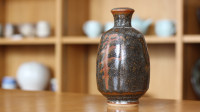
A display of works from the Bradshaw-Bubier studio pottery collection.
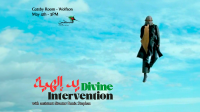
Screening of Elia Suleiman’s Divine Intervention, in conversation with assistant director Rania Stephan.
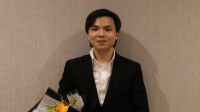
Wolfson College's inaugural Ian Cross Instrumental Scholarship Concert will be given by pianist Samuel Foo with works by Bach, Brahms and Ravel.
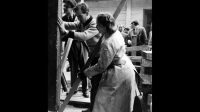
How did architecture schools respond to the need to rebuild Britain after World War Two?
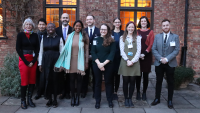
An opportunity for the Wolfson community to discover and engage with the diverse and important sustainability research happening across College by its Fellows and Early Career Researchers.

